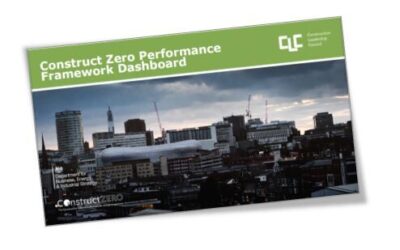Sustainability in the Finishes and Interiors Sector
FIS is committed to taking a pro-active lead, not just in supporting the UK ambition to net zero carbon by 2050, but delivering profound transformation within our supply chain on all aspects of ethical and environmental sustainability.
In this toolkit we look at some of the key actions that you can take and also some of the wider sector initiatives that can support your business in setting a sustainability strategy. The aim is to support companies in meeting the ethical and environmental aspects of sustainability considered from the three dimension of planet, people and profit across the entire construction supply chain. Definitions of sustainability do vary, but focus is on where our sector can make a positive impact in line with the UN Sustainability goals and the Net Zero agenda in the UK.
FIS 10 Golden Rules for Waste Reduction
Introducing Sustainability
General Principles
Relevant Literature
Reuse
FIS Pre-Cycle Agreement
The FIS PreCycle agreement provides a direct link between the manufacturer and user of a construction product to ensure that at end-of-service-life, the material can be recovered, repurposed, recycled or processed in the most environmentally way by keeping the product at its highest value application and importantly avoiding landfill.
Sector Specific Activities
Flooring
Plasterboard
Ceilings
How to measure sustainability
Sustainability related to your activities
Sustainability related to your organisation
Training
FIS has partnered with the Supply Chain Sustainability School
Zero carbon resources for finishes and interiors
Free-to-access training materials, videos, webinars and resources.
FREE sustainability learning pathway “‘FIS Sustainability Awareness: Doing Business Better”.
Sustainability Headlines
Carbon Reduction Code for the Built Environment update: Issue 3.0 available now
The Carbon Reduction Code for the Built Environment has been updated to Issue 3.0 May 2023. The Code provides a mechanism that enables individual organisations to publicise their annual decarbonisation progress, and thereby collaborate and share best practice on their...
FIS responds to RICS consultation on Whole Life Carbon Assessment for the Built Environment
In March 2023, RICS consultated on the revision of the RICS professional statement on whole life carbon. The deadline for the submission of comments was 18 April and FIS provided some feedback on the document on behalf of its members. The feedback was mainly focused...
New learning pathway aims to build sustainability knowledge
The FIS Sustainability Leadership Group is pleased to announce the launch of a learning pathway which was developed in collaboration with the Supply Chain Sustainability School. The 'FIS Sustainability Awareness: Doing Business Better' learning pathway is aimed at all...
Using Artificial Intelligence to solve the re-use conundrum
We are delighted to commend to you the first in a new series of newsletters from the Link Consortium. The Link Consortium brings together experts in building materials reuse (including FIS) looking at how the sector can adopt latest artificial intelligence and object...
Construct Zero Performance Framework Dashboard – 4th Quarterly Report
The construction sector has taken a number of significant steps towards net zero according to data published today. At COP26 last year, the Construction Leadership Council launched its CO2nstruct Zero programme, with associated measures to track carbon reduction...
Access to EV chargepoint grants
SMEs can get grants from the Office for Zero Emission Vehicles to install electric vehicle charging infrastructure in their commercial car parks. Eligible businesses can claim £350 for each chargepoint socket installed and £500 per parking space enabled with...
FIS Events
Path to Net Zero
The CLC Roadmap to Recovery has laid out proposals to secure the future of construction, while setting the industry on a sustainable path towards recovery. But what does this mean to projects in our sector.
Calculating your carbon footprint
As the industry is becoming more aware of the urgency to work towards net zero carbon targets, it is important that organisations start measuring their carbon footprint.






